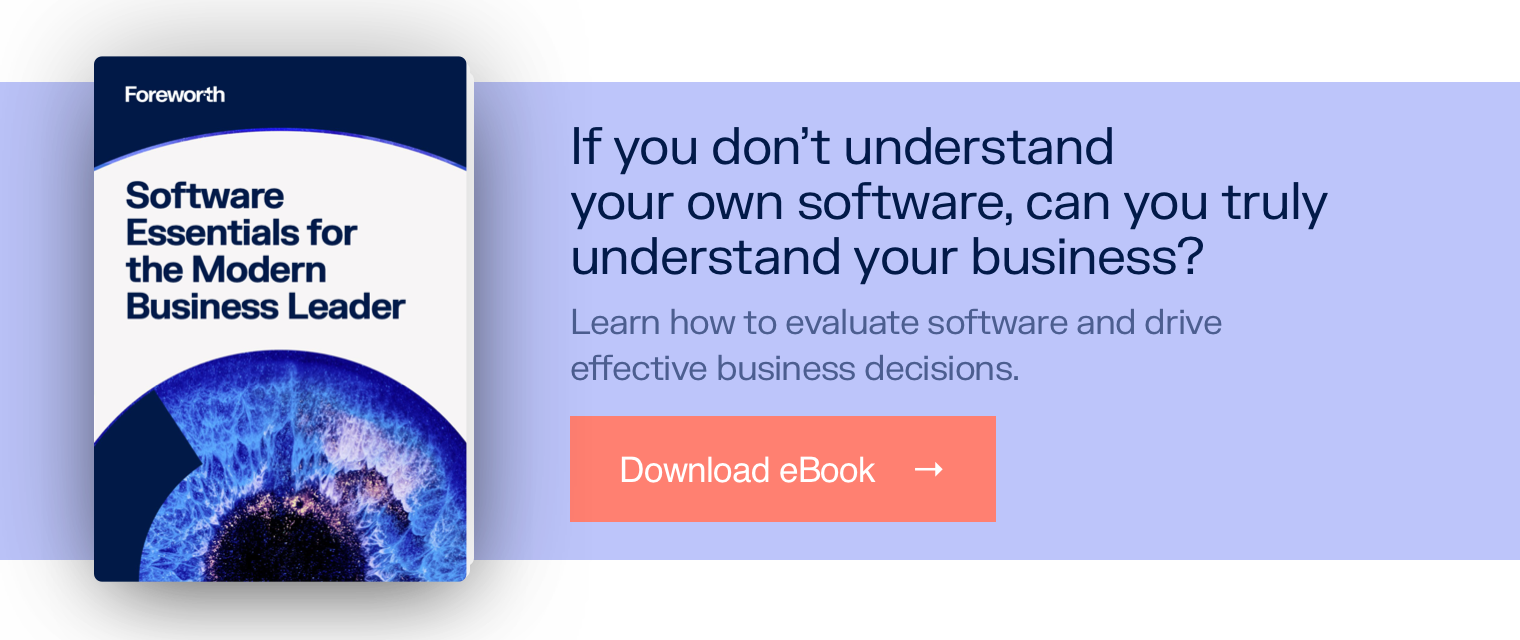Investments in enterprise technology are on the rise thanks to private equity firms. That said, these firms face challenges when investing in companies that provide software tools or subscription services.
In a podcast about why PE is a key player in the software economy, Jeff Vogel, EY-Parthenon’s Head of the Software Strategy Group, elaborates on the types of challenges PE firms are facing:
- There are many software vendors and a variety of ways to go about solving a problem. According to Vogel, software solutions can first be solved with “paper and pencil. Then I can solve it with email and Excel. Then I can write my own code and develop it myself. I’m going to outsource it to Infosys and they’re going to build it for EY.”
- Software is never complete. “The product might roll out with new features every 30, 60, 90 days, more frequently... R&D expense is high because you constantly have to be evolving a software product.”
These are just two of the setbacks that can make it challenging for private equity firms to get in on the software action.
The best approach to mitigate these issues is to use private equity software solutions to automate processes and improve efficiency.
The right software solution can help PE firms get a leg up on the competition in terms of internal operations and workflow, monitoring investments opportunities, and portfolio monitoring.
Internal operations and workflow
Source: Twitter
Manually working on spreadsheets and other aspects of internal operations is a breeding ground for human error. It accounts for 90% of workplace problems and can cost money, take up time, and disrupt productivity.
“Operating a fund in just Excel today isn’t possible, and having the capabilities and skills in place to support integrations for data modeling and analysis is very important.” – Eric Feldman, Riverside, in the 2018 Mergers and Acquisition Roundtable.
Using automation in business processes can give private equity firms a competitive advantage. Key activities like risk analysis and management can be automated while your staff can focus on other tasks that require more human interaction, like relationship building.
Task automation also cuts costs. For instance, PE firms can save money consistently through the use of cloud-based storage.
Monitoring investment opportunities
A private equity firm’s key function, finding potential investment opportunities, is still considered to be one of its most complex tasks.
Having relationship intelligence software at your disposal is also vital, as many deals come from networking. Founders often evaluate their potential investors based on their operational expertise and connections.
Various software solutions exist that allow users to select their search criteria, which narrows the process and boosts conversion rates. Furthermore, most deal sourcing platforms provide tools that connect investors with companies, resulting in more generated leads. Some platforms also automate the process from deal initiation to closing.
A 2017 BCG study concluded that software expertise is crucial in investing in the software industry and advised opportunistic PE firms to gain relevant expertise as quickly as possible.
Source: Twitter
Much has changed since then. PE firms can quickly enlist the help of a software specialist, but this doesn’t solve the questions surrounding a platform’s financial viability or profitability.
Machine learning and AI can help with this. They can be used to identify patterns in massive amounts of data and historical information to predict a software solution’s success or failure in the market.
Conclusion
According to John Kim, H.I.G. Growth Partners’ Managing Director, having a business intelligence tool that dissects data, normalizes it, then generates intelligent reports is revolutionary in giving companies unprecedented insights.
With the help of predictive tech, investors can find and interpret meaningful insights that can help them make smarter decisions and identify initiatives that will create value for them in the future.
PE firms need to employ these technological applications to reduce analytical challenges and obtain the business intelligence they need to stay on top of their game.
About the author
Elena Leralta
Working as Foreworth’s Chief Financial Officer, Elena possesses a wealth of knowledge on business management and finance owing to her over 20 years of experience working in the financial sector.
More info →


What do you think? Leave us your comments here!